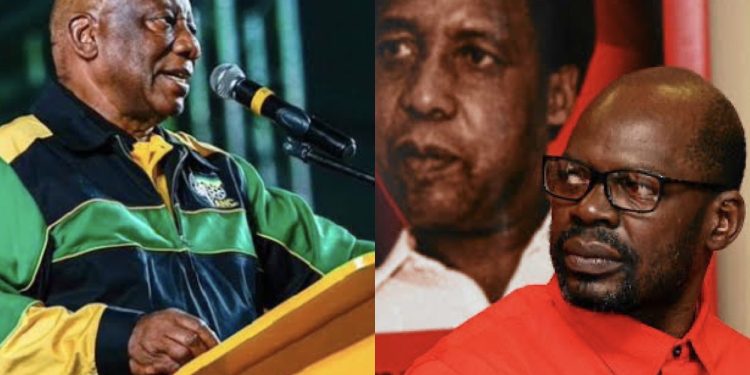The African National Congress (ANC) is set to engage in pivotal discussions with its alliance partner, the South African Communist Party (SACP), to reaffirm their shared commitment to the National Democratic Revolution (NDR). The talks come amid rising concerns about the potential impact of a proposed Government of National Unity (GNU) on the alliance’s progressive agenda.
Insiders at ANC’s Luthuli House confirm that the discussions will focus on ensuring the NDR remains central to policymaking, even in the context of compromises that could arise from the GNU framework. A cornerstone of the ANC-SACP alliance, the NDR seeks to create a non-racial, non-sexist, and democratic South Africa by addressing the systemic inequalities entrenched during apartheid through transformative socio-economic reforms.
The GNU proposal, aimed at forming a coalition of political parties to tackle South Africa’s governance challenges, has gained traction in some circles as a way to address pressing issues like unemployment, poverty, and inequality. However, critics within the ANC and SACP fear the model may dilute the revolutionary principles underpinning the NDR.
An ANC National Executive Committee (NEC) member, speaking anonymously, emphasized that the talks aim to safeguard the NDR’s principles. “We recognize the urgency of achieving political stability but cannot compromise the core values of the NDR. Engaging with the SACP ensures we approach the GNU with unity and clarity on our priorities,” the NEC member stated.
The SACP has expressed concerns that the GNU model could open the door to neoliberal policies detrimental to the working class and marginalized communities. SACP spokesperson Alex Mashilo reiterated the party’s commitment to the NDR, stressing that the alliance’s transformative agenda must not fall prey to political expediency. “Our dedication to the NDR is unwavering,” Mashilo affirmed. “We expect the ANC to uphold this vision and prevent short-term compromises from undermining long-term goals.”
Political analysts suggest these discussions could significantly shape the ANC’s position on the GNU and influence the alliance’s broader policy direction. While some argue the GNU could offer a pragmatic solution to South Africa’s challenges, others warn it risks diluting the ideological foundations of the ANC-SACP partnership. “The GNU might provide temporary relief but could jeopardize the alliance’s revolutionary objectives,” noted one expert, adding that the talks will play a crucial role in determining South Africa’s political trajectory.
The ANC has clarified that these engagements are not an outright rejection of the GNU proposal but an effort to ensure the alliance’s ideological integrity remains intact. “Navigating this terrain requires us to remain rooted in our historical mission,” said the NEC member.
As the ANC and SACP deliberate, the outcome will likely have profound implications for the alliance and South Africa’s political and socio-economic future. In an era of political fragmentation and economic uncertainty, the decisions made during these talks could redefine the nation’s governance framework and its pursuit of the revolutionary ideals enshrined in the NDR.






















